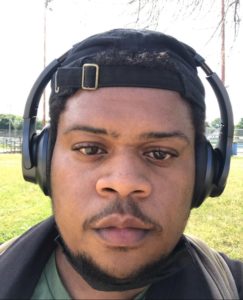Journeys to Humanism: Many Paths, Similar Destinations
Journeys to Humanism, theHumanist.com’s regular series, features real stories from humanists in our community. From heartwarming narratives of growth, to more difficult journeys, our readers open up about their experiences coming to humanism.
 Taj Pollard
Taj Pollard
Milwaukee, Wisconsin
Although I was always a skeptic as a child and young adult, it took me until I was twenty-five years old to really work through my beliefs. Deconverting from Christianity and leaving family was one of the hardest things I had to do because it changed how I experience community and how I navigate normal things like relationships and work. Now at twenty-six, I’m living my own life on my own terms, and have adopted a holistic and empathetic approach to life. Being a humanist is rewarding because you recognize that you have both power and personal responsibility that you get to take all of the credit for.
Christiane Martel
Pointe-Claire, QC, Canada
I was raised in a French-Canadian Catholic family. My parents were not particularly observant, so they sent my brothers and I to church, while they stayed home. The only thing that made mass tolerable was serving mass (assisting the priest). One day, I went to the church ahead of the service to don my robe as I had done for years, only to be told by our parish’s new priest that only boys could serve mass, not girls. And that is how, at the age of ten or so, I started asking myself why a good and kind god had no use for women and girls. I remember the priest visiting my mom to order her to make more babies as it had been a few years since her last was born. The church sent a lawyer’s letter to our home because my parents hadn’t paid the tithes. At five years old, my classmates and I were made to confess our sins in school on a weekly basis. We were all terrified of the priest. Still, I had (and continue to have) an appetite for learning about all religions. I read the New and Old Testaments and comparative religion texts. I have seen religious zeal tear apart my family and have come to recognize that religion is but a tool to control others. Critical thinking is not welcomed by church authorities and I simply cannot accept this. I do my best to adhere to the humanist philosophy of “Good without god” and that is good enough for me.
Jerry Paul
Divide, CO
 My life’s experiences—both good and bad, both in the military and as a civilian—have led me to the point where today at age sixty-eight I am a committed humanist and agnostic. No-one else has shared exactly the totality of my life experiences, therefore no-one else has any basis for criticism or condemnation of my personal beliefs, yet, I find that there is a lack of understanding and all too frequently disparagement of those beliefs among those that do not share them. Godless I may be, but I am not evil simply because I refuse to share your personal religious beliefs.
My life’s experiences—both good and bad, both in the military and as a civilian—have led me to the point where today at age sixty-eight I am a committed humanist and agnostic. No-one else has shared exactly the totality of my life experiences, therefore no-one else has any basis for criticism or condemnation of my personal beliefs, yet, I find that there is a lack of understanding and all too frequently disparagement of those beliefs among those that do not share them. Godless I may be, but I am not evil simply because I refuse to share your personal religious beliefs.
Raised as a Christian, I eschewed any form of organized religion in light of the immense hypocrisy, sanctimony and pious posturing that I personally witnessed resulting all too often from too many such organized religions and their adherents in the UK and Europe. Much of what I have seen since, in particular since living in the USA for the past twenty years, has served to reinforce my conviction that my decision was absolutely the right one for me.
I am entirely accepting of and respectful towards those that have different personal beliefs to mine as long as they understand that those beliefs are personal to them, they don’t proselytize, they don’t attempt to impose the tenets of those beliefs upon me or anyone else, and they level neither criticism nor condemnation towards me for my beliefs.
If invited for some special service or event I will attend church or other places of worship in the spirit of love and friendship. I will bow my head and hold hands in that spirit and as a mark of respect during prayer, but I will not myself pray to any god, or other deities whose existence I have neither faith nor disbelief in. To do so would be disingenuous and hypocritical and render me exactly that which I found so objectionable in years long past.
To each his or her own, be respectful and be kind.
John Pike
Faro, ND
I’m not sure I had a “journey” to humanism. I went to Lutheran church and I didn’t mind it too much. My conservative eighth grade confirmation teacher answered all of my questions, of which I had many. After confirmation, my parents made attendance optional.
My love for Star Trek helped guide me to humanism. Through that show I saw an Earth and a universe where humans became better than we are. There were certainly episodes, such as “Who Mourns for Adonis,” that questioned the need for a deity. Episodes like “Return of the Archons” and “The Apple” questioned ritual. But, overall, this sense that humanity had made it by relying on each other and reason, was fascinating to me. We could do it. We could reach out to others not like us (“Is There In Truth, No Beauty”). Trek taught that prejudice and racism was wrong. I just saw a better world through that show and wanted to get there.
We all have our own stories of how we came to be humanists, and we want to hear yours! Fill out the form here to be featured in this series.
